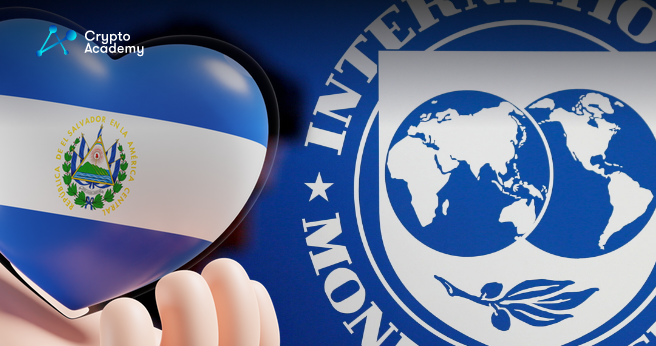In a recent statement, the IMF emphasized that El Salvador “should” address Bitcoin risks so that it has less exposure to its volatility.
El Salvador is facing important financial sector issues that need immediate attention to rebuild financial stability and promote economic growth. According to the International Monetary Fund (IMF), the country’s banking sector is healthy, with non-performing loans (NPLs) at 1.8%. But, regulatory reforms are required to maintain financial stability.
Banks’ exposure to the government has increased and system-wide liquidity buffers have decreased. This comes as a result of halving reserve requirements since 2019. To strengthen bank liquidity, the IMF is proposing a fiscal consolidation and financing plan, along with regulatory reforms that would restore reserve requirements to at least 15% of deposits. The IMF also recommends the approval of the Financial Stability Bill, the recapitalization of the central bank, and an overhaul of the legal framework for cooperative banks.
Risks Posed by Bitcoin, According to IMF
The central bank payment infrastructure (Transfer 365) is rapidly improving retail payments and has a high potential for financial inclusion. However, the IMF is urging the Salvadoran authorities to address the risks posed by Bitcoin. Bitcoin was recently approved as a legal tender in the country. The legal and fiscal risks of crypto assets, including tokenized bonds, persist. IMF recommends greater transparency over the government’s transactions in Bitcoin, as well as the financial situation of the state-owned Bitcoin wallet (Chivo).
The IMF is warning against financing purchases of Bitcoin by issuing tokenized securities in El Salvador. That is because of its speculative nature and the fiscal risks it presumably poses. The authorities should reconsider their plans to expand government exposure to Bitcoin, including by issuing tokenized bonds. The use of proceeds by the new Bitcoin Fund Management should follow regular expenditure controls and good governance practices.
Strong governance, fiscal transparency, and accountability are critical for improving resource management, lowering borrowing costs, and building trust in the country. The IMF is calling for the return of fiscal transparency standards that existed prior to the suspension of the Fiscal Responsibility Law. Audits of pandemic-related emergency spending and the Bitcoin trust fund (FIDEBITCOIN) should be completed soon. Medium-term macro-fiscal and financing plans should be published.
Measures for Financial Stability in El Salvador
The IMF is supporting the alignment of El Salvador’s anti-money laundering and anti-corruption legislation with international standards. The Financial Intelligence Unit is ramping up its institutional capacity to monitor and investigate suspicious activities. That includes those related to virtual asset service providers (VASPs). The proposed public procurement law, which requires the reporting of beneficiary ownership information, has the potential to improve the efficiency of public spending. The IMF is also calling for the protection of judicial independence and impartial access to the court system. This would attract investment and enhance the country’s business climate.
In conclusion, the IMF is urging the Salvadoran authorities to take timely measures to rebuild financial stability and promote economic growth. Regulatory reforms, greater transparency, and strong governance are critical for the long-term success of the country’s financial sector. The IMF wants to help El Salvador during these challenges and build a better future for its citizens. It is crucial that countries like El Salvador do not show instability in their economy given that it is the first to fully adopt BTC as a legal tender. Therefore, if El Salvador is financially stable, other countries could venture into the possibility of BTC adoption.

